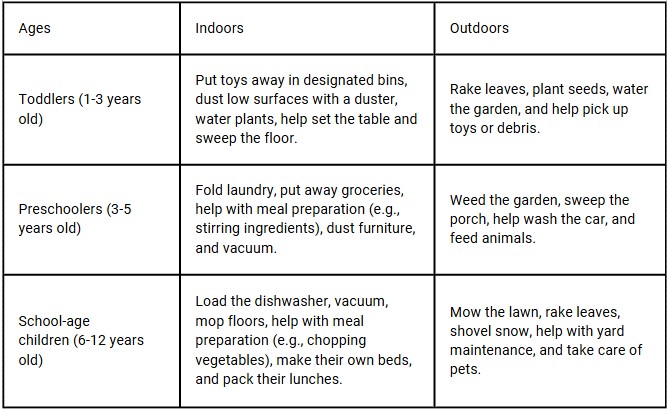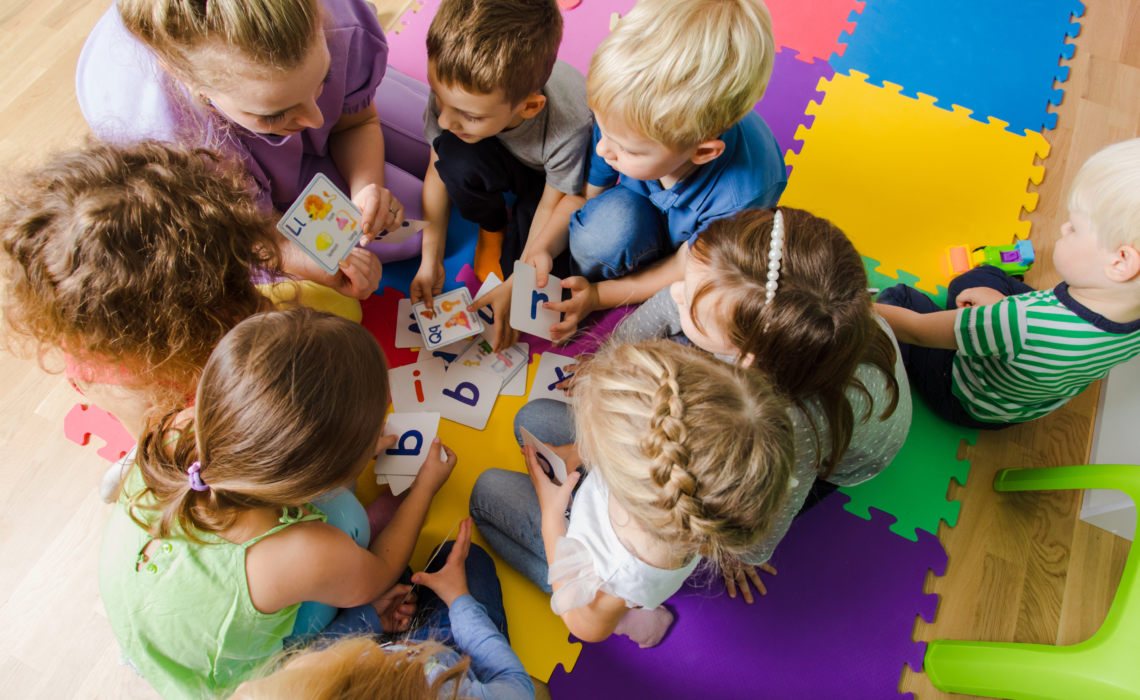Empowering Young Helpers: Age-Appropriate Chores for Toddlers and KidsFeatured
Involving children in household chores from a young age can foster a sense of responsibility, independence, and contribute to their development. Here’s a guide on age-appropriate chores, Montessori-inspired approaches, and how parents can integrate their children into daily routines.
Montessori and Chores
The Montessori method emphasizes practical life skills as a crucial aspect of child development. Chores provide opportunities for children to learn independence, coordination, and responsibility. Montessori educators often introduce simple chores to toddlers and gradually increase complexity as the child grows.
Age-Appropriate Chores

Introducing Chores
- Start early: Introduce age-appropriate chores gradually, starting with simple tasks.
- Make it fun: Turn chores into games or sing songs while completing them.
- Break down tasks: Divide larger tasks into smaller, manageable steps.
- Provide positive reinforcement: Praise and encourage your child for their efforts.
- Avoid power struggles: Focus on cooperation and avoid making chores feel like a punishment.
Parental Modeling
- Lead by example: Children learn by observing. Demonstrate how to complete chores with enthusiasm and care.
- Involve the whole family: Create a sense of teamwork by involving all family members in household responsibilities.
- Make it a family affair: Discuss household chores together, assign responsibilities, and create a chore chart.
Frequency of Chores
The frequency of chores can vary depending on the child’s age, abilities, and the family’s schedule. Aim for consistency and gradually increase expectations as the child grows.
By involving children in household chores, parents can cultivate a sense of responsibility, independence, and self-worth. Remember to tailor the chores to your child’s age and abilities and make them enjoyable experiences for the whole family.
References
Montessori Services of America: https://www.montessoriservices.com/
The New York Times: https://www.nytimes.com/2018/08/18/opinion/sunday/children-chores-parenting.html
Parents Magazine: https://www.houstonpublicmedia.org/npr/2018/06/09/616928895/how-to-get-your-kids-to-do-chores-without-resenting-it/
Contribution by Eunice E. Heredia-Colon, MEd.












